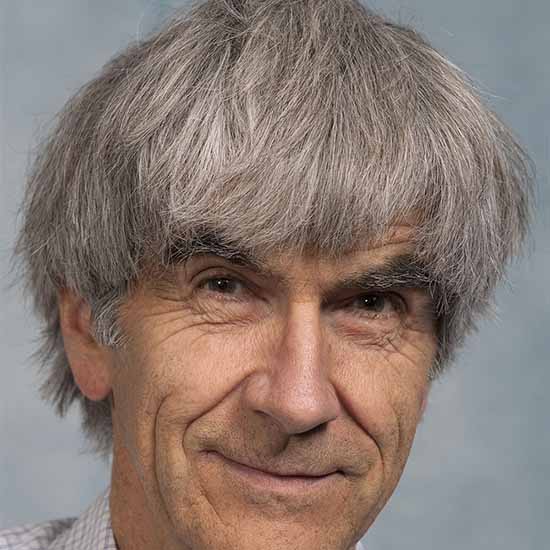Nigel Unwin obtained his PhD in metallurgy at the University of Cambridge in 1968, and then took a position at the MRC Laboratory of Molecular Biology in Cambridge (LMB). He left in 1980 to become Professor of Cell Biology at Stanford University School of Medicine, then returned to the LMB in 1988.
He is interested in developing electron microscopical methods and using them to analyse the structures of membrane proteins. In 1975, together with Richard Henderson, he determined the first structure of an integral membrane protein: bacteriorhodopsin. More recently, he has focused on the nicotinic acetylcholine receptor — a neurotransmitter-gated ion channel that mediates rapid communication across the nerve–muscle synapse. He derived an atomic model of this protein in 2005 and, later, a mechanical description of how it works.
Nigel’s awards include: the Ernst Ruska Prize for electron microscopy in 1980; the Rosenstiel Award for Basic Medical Research in 1991; the Louis–Jeantet Prize for Medicine in 1996; the Gregori Aminoff Prize in crystallography in 1999; and the Royal Society Croonian Medal in 2000.
Professional position
- Emeritus Professor, MRC Laboratory of Molecular Biology
Subject groups
- Anatomy, physiology and neurosciences
Cellular neuroscience
- Biochemistry and molecular cell biology
Biophysics and structural biology
Awards
Croonian Medal and Lecture
On 'The nicotinic acetylcholine receptor and the structural basis of synaptic transmission'.
Louis-Jeantet Prize for Medicine
No citation available for this award.

